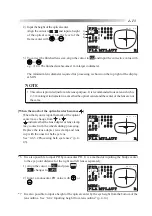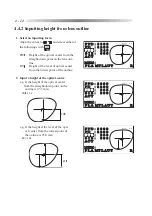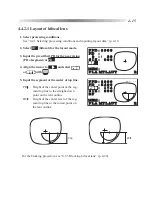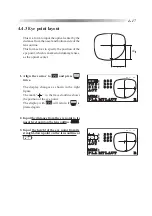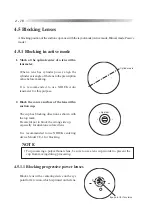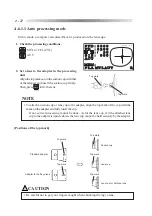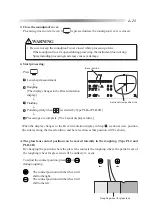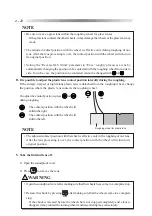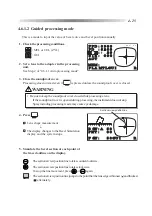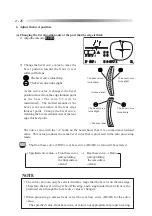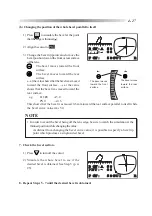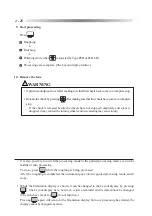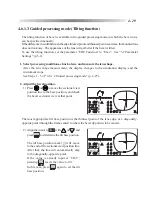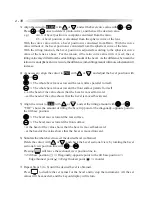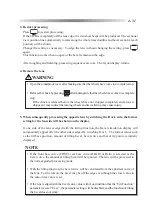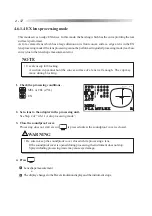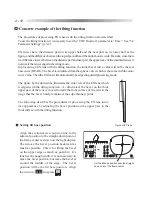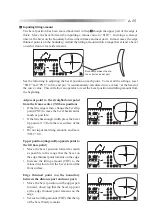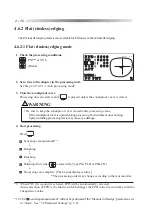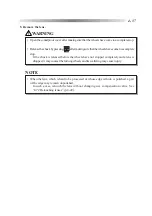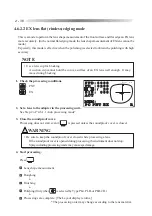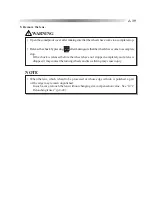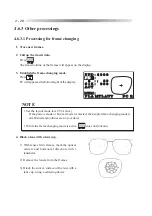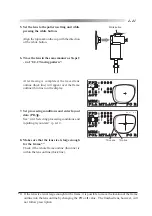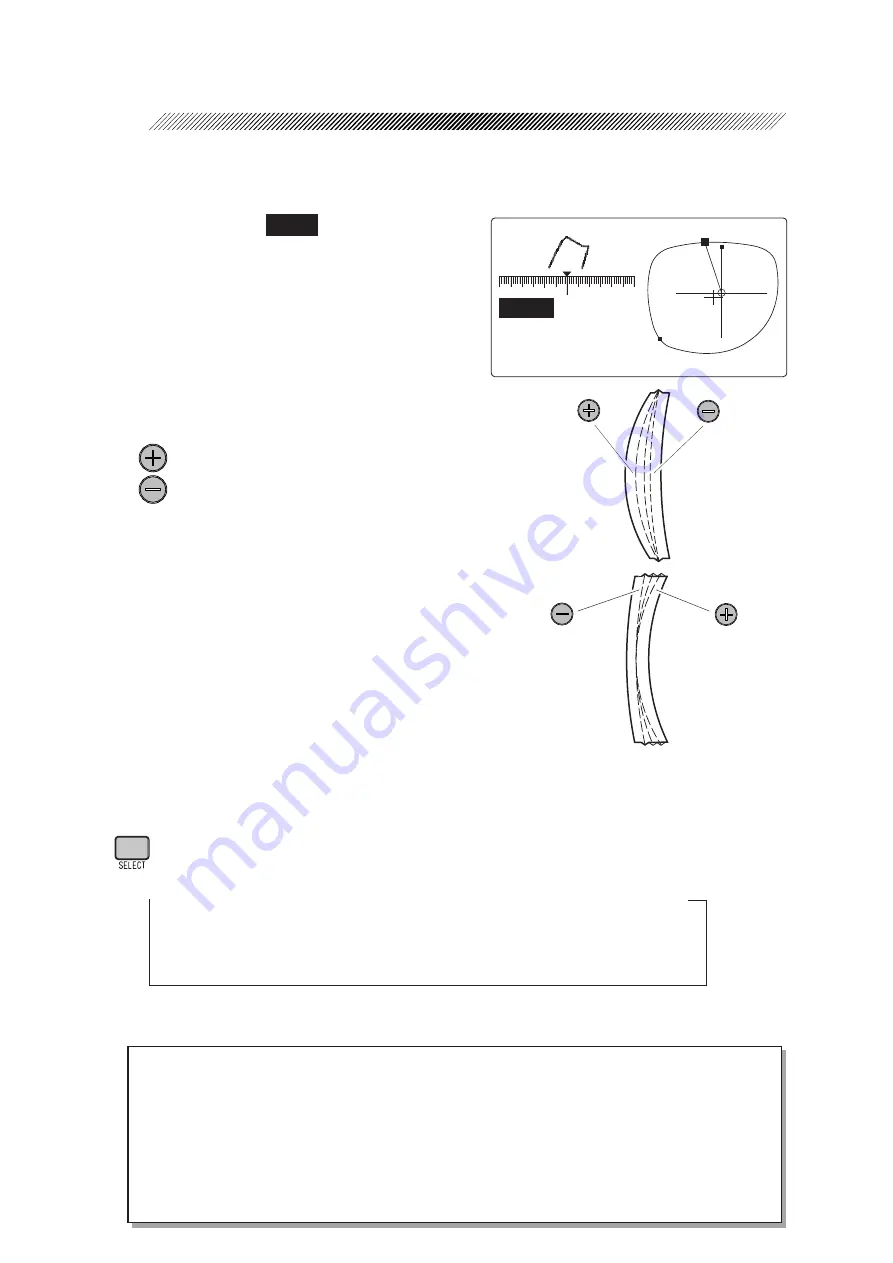
4 - 26
6. Adjust the bevel position.
(
a) Changing the bevel position only at the part that the edge is thick
1) Align the cursor to
B CRV
.
2) Change the bevel curve value to move the
bevel position toward the front or rear
surface of the lens.
: The bevel curve turns sharp.
: The bevel curve turns slight.
As the curve value is changed, the bevel
position moves from the edge thinnest point
a s t h e b a s e ( T h e r a t i o 5 : 5 w i l l b e
maintained). The shifted amount of the
bevel is the maximum at the lens edge
thickest point. Change the bevel curve,
watching the bevel sectional view at the lens
edge thickest point.
The curve value with the “A” mark on the head shows that it is a computer-calculated
value. This value produces the same bevel curve that is processed in the auto processing
mode.
: The front base curve (FRNT), rear base curve (REAR), or ratio will be selected.
o
Specified curve value
o
Front base curve
o
Rear base curve
o
Ratio
(curve profiling
(curve profiling
the front surface
the rear surface
of lens)
of lens)
NOTE
• The curve value can only be selected within a range that the bevel is on the lens edge.
Therefore, the bevel will never be off the edge, and a single-sided bevel will never be
produced even though the bevel curve value is changed.
• When processing a cataract lens, select the rear base curve (REAR) for the curve
value.
The specified value, front base curve, or ratio is not appropriate for proper beveling.
ޓ
ޓ
ޓ
ޓ㧚
ޓ㧚
ޓ㧚
㧮%48
㧦㧭ޓ㧡㧜
㧼㧺㨀㧦ޓޓ㧜㧜ޓޓޓޓޓޓޓޓ
ޓ
㧲%48㧦ޓޓ㧡㧜㧳㨁㧵ޓޓޓޓ㧾
The bevel curve
turns slight.
The bevel curve
turns sharp.
<Convex lens>
The bevel curve
turns slight.
The bevel curve
turns sharp.
<Concave lens>
Summary of Contents for LE-9000LX
Page 1: ...PATTERNLESS EDGER Model LE 9000LX OPERATOR SMANUAL ...
Page 17: ...2 9 Top view or or ...
Page 19: ...2 11 ...
Page 145: ......


